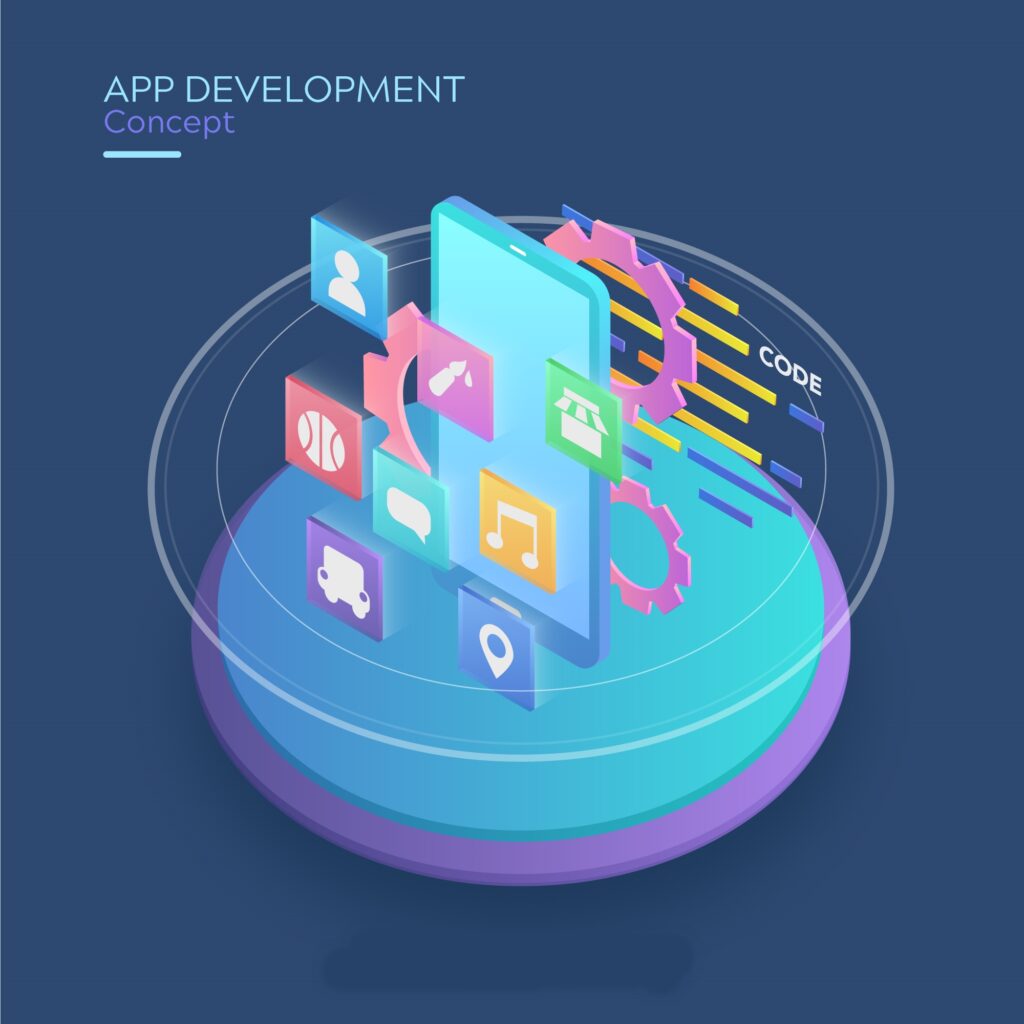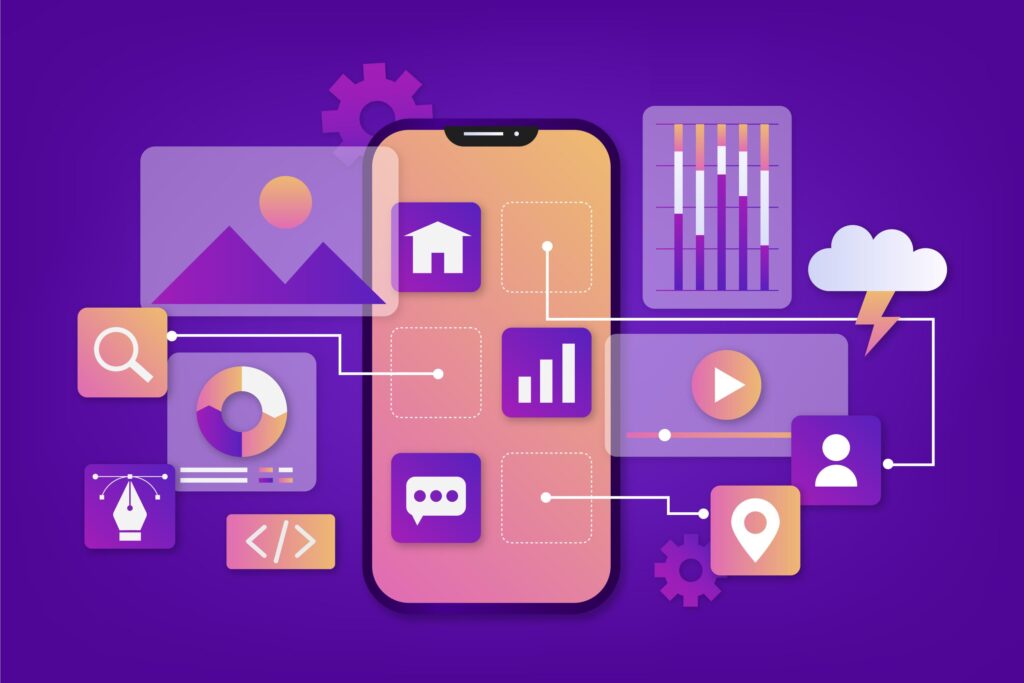In today’s mobile-driven world, having a mobile app is crucial for businesses to stay competitive and engage with customers on-the-go. However, choosing the right app development platform can be a challenge, with various factors to consider, such as budget, functionality, and user experience.
In this article, we will explore the three main app development platforms – native, hybrid, and cross-platform – and provide real-life examples of companies that have leveraged these platforms to create successful mobile apps. By the end of this article, you’ll have a better understanding of each platform and which one may be best suited for your business needs.

Native App Development Platform
Native app development involves building an app specifically for a particular operating system, such as iOS or Android, using programming languages like Objective-C, Swift, or Java. Native apps provide the best user experience because they are optimized for the specific device and operating system they are built for. They can also access the full range of device features, including camera, GPS, and push notifications, and are typically faster and more responsive than other types of apps.
However, native app development can be expensive and time-consuming, as separate versions need to be developed for each operating system. Businesses may need to hire separate developers for each platform. However, the advantages of a native app can outweigh the cost, particularly for businesses that require a high level of performance or have complex features.
- Starbucks, the world’s largest coffeehouse chain, has a popular mobile app that allows customers to order and pay for their drinks, earn rewards, and receive personalized offers. The app is built natively for both iOS and Android and takes advantage of the unique features of each platform, such as Apple Pay and Google Maps. The Starbucks app has been downloaded over 30 million times and has become a critical component of the company’s digital strategy.
- Facebook’s native app is available on both iOS and Android and provides a seamless user experience with features such as push notifications, geolocation, and camera access.
- Airbnb’s native app provides users with a customized experience that matches their device and operating system. The app also provides access to the device’s camera and GPS for easy booking and location-based search.
Hybrid App Development
Hybrid app development involves building an app that can run on multiple platforms using web technologies like HTML, CSS, and JavaScript. Hybrid apps are essentially web apps packaged in a native app wrapper, allowing them to access some device features like the camera, GPS, and contacts.
Hybrid apps offer a balance between cost-effectiveness and performance, as they are less expensive to develop than native apps and still offer a native-like user experience. Developers can use a single codebase for multiple platforms.
The primary disadvantage of hybrid app development is that they may not provide the same level of performance or user experience as native apps, especially for graphics intensive applications. Hybrid apps can also be slower to load, and the UI may not be as polished as a native app.
- Untappd, a social network for beer enthusiasts, has a hybrid mobile app that allows users to discover new beers, rate and review beers, and connect with friends. The app is built using the Ionic framework and runs on both iOS and Android devices. The hybrid app has allowed Untappd to quickly iterate and release new features, while still providing a seamless user experience for its users.
- Instagram’s hybrid app is built using web technologies, allowing it to run on both iOS and Android. The app provides access to the device’s camera and location services and is optimized for a seamless user experience.
- Uber’s hybrid app allows users to book rides and track their progress using a single codebase. The app provides access to the device’s GPS and camera for easy booking and location-based search.
Cross-platform App Development
Cross-platform apps are built using a single codebase and can run on multiple operating systems, such as iOS, Android, and Windows. Cross-platform tools like Xamarin, React Native, and Flutter allow developers to build apps using web technologies like HTML, CSS, and JavaScript, while providing access to native device features.
Cross-platform apps offer cost-effectiveness and faster time-to-market, as developers only need to write code once and can deploy the app to multiple platforms. However, cross-platform apps may not offer the same level of performance and user experience as native apps. Additionally, the development tools may not provide access to all the device features available on each platform.
- Walmart’s cross-platform app is built using React Native and provides a seamless user experience on both iOS and Android devices. The app provides access to the device’s camera and location services and allows users to shop online or find products in-store.
- Skype’s cross-platform app is built using Xamarin and provides a seamless experience across all devices. The app provides access to the device’s camera and microphone and allows users to make voice and video calls on multiple platforms.
Choosing the right app development platform can make or break the success of your app. While native apps offer the best performance and user experience, they can be expensive to develop. Hybrid apps can be less expensive to develop, but may not provide the same level of performance or user experience as native apps. Cross-platform apps can be more cost-effective than native apps, but may not provide access to all device features and may have performance limitations.
Ultimately, the choice of app development platform depends on the needs of your business and the requirements of your app. It’s essential to work with an experienced app development team that can help guide you through the decision-making process and help you choose the right platform to ensure the success of your app.
Real-life examples of companies in different industries can provide insight into the benefits and limitations of each platform. From social media giants like Facebook and Instagram to e-commerce giants like Walmart and Uber, businesses in various industries have successfully used native, hybrid, and cross-platform app development to engage customers and drive revenue.
In conclusion, it’s crucial to evaluate the pros and cons of each app development platform and choose the one that best suits your business needs. Whether you decide to go with a native, hybrid, or cross-platform app, it’s essential to work with an experienced development team that can help you build an app that delivers the best user experience and drives revenue for your business.


